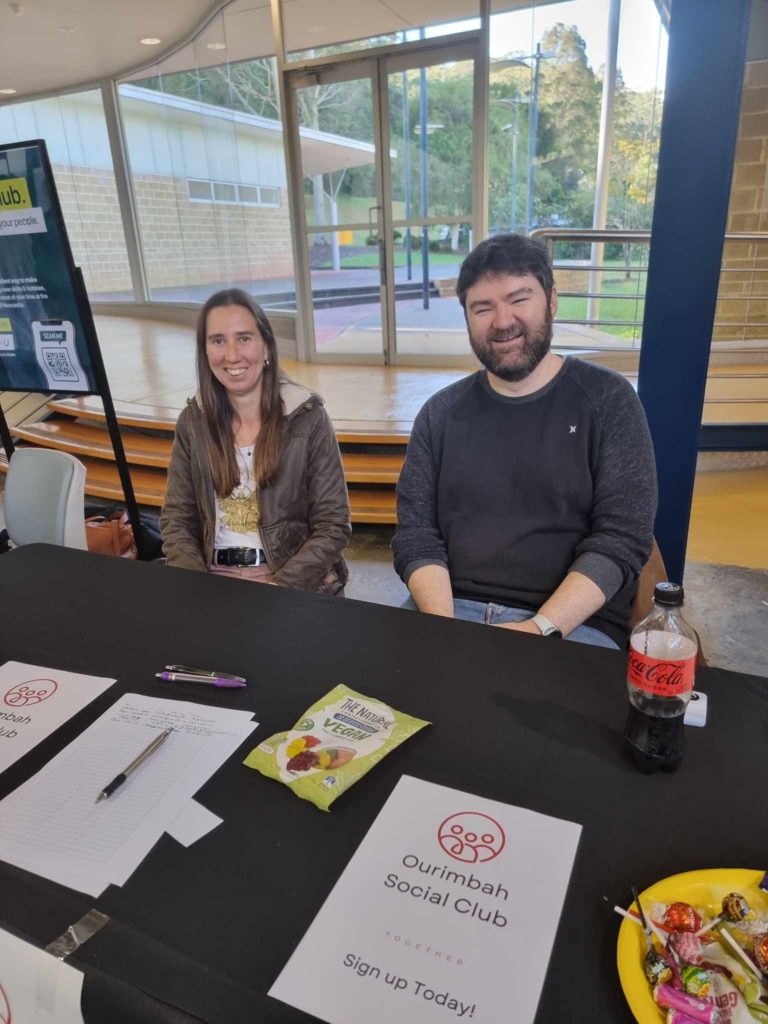As facilitator of the new Wyoming Anxiety Support Group run by Wayahead, Tim Gentle brings a wealth of lived experience to the role.
“I suffered from anxiety in primary and high school but back then people would just say ‘you’re a bit of a worrier’,” he said.
“There were no counsellors or social workers in the small town I grew up in.
“Then I was involved in a serious event when I was 19 and was really not in a great place.
“I removed myself from life, moved to the Blue Mountains and essentially for 20 years I had no contact outside my immediate family.
“For the first few years I didn’t even leave the house and had to rely on people to drop in food.
“I had four numbers in my phone – for my sister, my mother, my father and my grandmother, and I would speak to them each day.”
During that time, Gentle had two hospitalisations due to trauma-induced psychosis and underwent weekly therapy for six years.
“Eventually, my parents wanted to move to the Central Coast and I tagged along,” he said.
“Since moving here I have decided to start a new start to life.
“I have enrolled in the Open Foundation course at Newcastle University and study at the Ourimbah campus.
“I finally decided I needed to start living after losing 20 years of my life.”
Gentle investigated support groups and found one at Newcastle, which he began attending.
“I went month after month and I eventually grew in confidence and really started to live,” he said.
He has now immersed himself in his studies and even heads the social club at Ourimbah campus.

“The WayAhead group existed on the Central Coast before COVID hit but had not done anything since so I contacted them and offered to be a facilitator,” he said.
“I did the Zoom training and a number of interviews and now I am facilitating the Wyoming support group and have even been invited to speak at other support groups.
“I am also deputy of the Accessibility Guild at Ourimbah campus.
“It’s a whole new world for me.”
Gentle said facilitators with lived experience can be particularly effective in a group situation.
“People can say ‘hey if you got through this I can too’,” he said.
Gentle said isolated incidences of depression or anxiety could often be confused with profound mental health issues.
“You can get anxious over a job interview or be a little depressed following a particular event, but some people have trouble just getting out of bed,” he said.
Gentle said medication could be very effective and although many people were reluctant, he encouraged them to be guided by medical professions in finding the medication right for them.
Group support could also be invaluable as people shared experiences and solutions, he said.
“I want to make sure no-one loses out on life like I did,” he said.
“Sometimes it doesn’t take much for people to realise it’s not that hard to re-engage in life.
“It’s hard to describe how dark depression can be and the places your mind can go – therapy and medication can change your life.”
Gentle said he had also found that just 30 minutes of physical activity each day could be extremely helpful.
“Diet can help too – get off the junk food and cut down on alcohol,” he said.
Gentle said the mental health landscape had completely changed, with open dialogue now encouraged.
The free Wyoming Anxiety Support Group aims to reduce the stigma around mental health, create support and foster connection.
It is held on the first Tuesday of each month at 10am at the Wyoming Community Centre, 147 Maidens Brush Rd and is open to anyone who suffers from anxiety, which is often intertwined with depression and other conditions such as OCD.
For more information email supportgroups@wayahead.org.au or call 9339 6013.
Terry Collins



